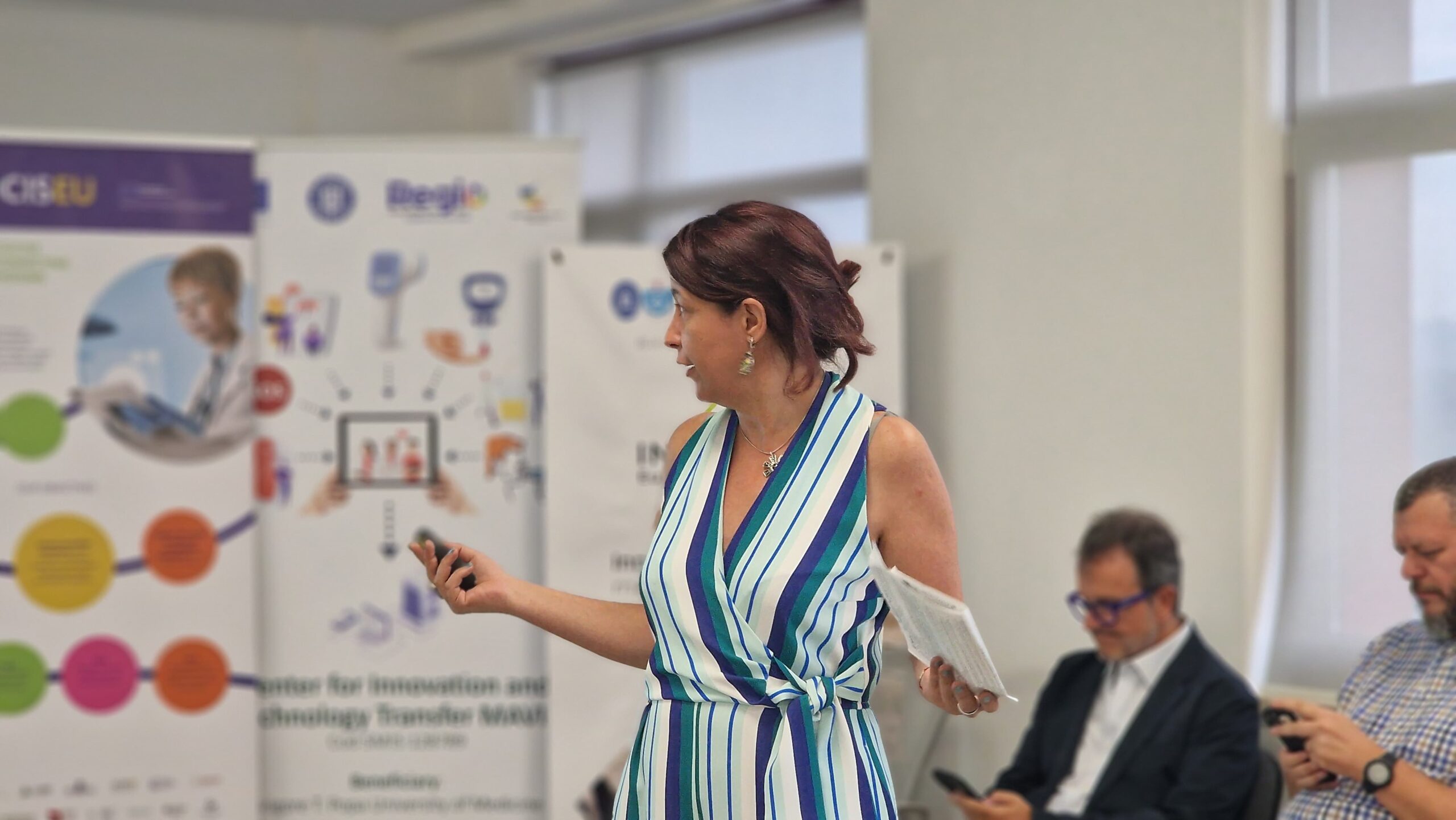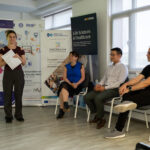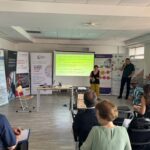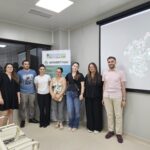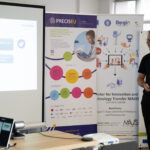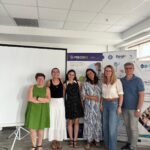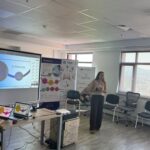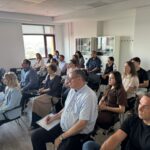From 7–11 July 2025, Iași, Romania hosted an international sharing of knowledge and learning opportunity on the future of personalised medicine. The PRECISEU Personalised Medicine School, held at the MAVIS – Center for Innovation and Technology Transfer and organised by Digital Innovation Zone with European partners, brought together clinicians, researchers, engineers, entrepreneurs, policymakers, and patient representatives.
Over five days, participants explored the personalised medicine — from biomarker discovery and genomics to digital health, ethics, and market access. The program combined high-level European policy discussions with practical case studies, drawing on regional strengths.
Key Takeaways
- From concept to reality – Personalised medicine is becoming both a legal and clinical reality in Europe. Romania’s 2023 law on the right to personalised medicine is the first in Europe to enshrine this as a patient right, aligned with the EU Council definition and GDPR-compliant data use.
- Beyond genomics – Innovation now integrates multi-omics (genomics, transcriptomics, proteomics, metabolomics, epigenomics) for better disease prediction, diagnosis, and treatment. Regulatory acceptance, validation, and reproducibility remain challenges, highlighting the need for EU-wide infrastructures.
- Regional research leadership – Iași showcased advances such as image-guided nanoplatforms, novel carbonic anhydrase inhibitors, and AI tools for stroke management, demonstrating progress from lab to clinic.
- Digital health gaps – Nordic countries lead in citizen-controlled EHRs, but interoperability remains uneven. The European Health Data Space (EHDS) aims to unify access by 2031, depending on political will and investment.
- Ethics & trust at the core – AI should act as a “virtual mentor” for clinicians, requiring transparency, bias mitigation, and clear liability to preserve patient trust.
Day-by-Day Overview
Day 1 – Opening & Foundations
- Opening Remarks – Cristina Baghiu, Assoc. Prof. Simona Caraiman, Prof. Dr. Cipriana Ștefănescu, Assoc. Prof. Dr. Ionuț Nistor, Prof. Dr. Bogdan-Ionel Tamba, and Cristian Cezar Buruiană emphasised the multidisciplinary nature of personalised medicine, the need to train young professionals, and the role of regional hubs.
- PRECISEU Project & Basics –
- María Cejas (BIOCAT) introduced PRECISEU’s EU-wide knowledge network.
- David Walsh (AstraZeneca) explained the shift from “one-size-fits-all” to individualised care.
- Assoc. Prof. Dr. Monica-Cristina Panzaru discussed genomics integration in diagnostics.
- Policy & Funding –
- Dr. Marius Geantă outlined Romania’s landmark law.
- Rossana Alessandrello (AQuAS) led a case-based evaluation framework workshop.
- Funding insights came from María Cejas (EU) and Lidia Mocanu (regional).
Day 2 – Genomics, Biomarkers & Health Data
- Multi-omics & Translation –
- Emanuela Oldoni discussed multi-omics biomarkers and their validation hurdles.
- Rosan Vegter addressed the “valley of death” in translational medicine.
- Prof. Dr. Adrian Iftene presented the REVERT project for colorectal cancer.
- Sara Zullino showcased an AI platform for stroke care.
- Molecular Innovation –
- Silviu-Iulian Filipiuc & Cristina-Mariana Uritu shared MRI-visible, drug-loaded nanoplatforms.
- Dr. Al-Matarneh Maria Cristina presented carbonic anhydrase inhibitors with therapeutic potential.
- Health Data & Cybersecurity –
- Carmen Mihai discussed the VELES pilot as an EHDS example.
- Dr. Octav Andronic spoke on big data analytics.
- Cătălin Mironeanu addressed health data cybersecurity.
Day 3 – AI, Digital Tools & Market Access
- AI in Healthcare –
- Montserrat Daban Marín and Kristina Eskenazi positioned AI as an aid, not a replacement, for clinicians.
- Mihaela Onofrei and Júlia Aznar Roig provided case studies from decision-support to patient engagement.
- Market Access –
- Chus Castillo analysed EHR adoption and the EHDS timeline (2027–2031).
- Ion Petrovai highlighted Eastern Europe’s adoption challenges.
- Kristina Eskenazi and Núria Martí showcased fast-track health innovation programs.
Day 4 – Ethics, Trust & Advanced Therapies
- Ethics & Trust –
- Prof. Dr. Liviu Oprea emphasised bias prevention, explainability, and liability in AI.
- Kristina Eskenazi linked ethics to public health infrastructure.
- Advanced Therapies in Rare Diseases –
- Dr. Samir Nuseibeh and Dr. Patrick Tjok Joe led discussions on access, manufacturing, and reimbursement.
Day 5 – Networking & Site Visits
- Networking – Business breakfast with speakers and participants.
- Site Visits –
- Petru Poni Institute: Biomaterials and biopolymers.
- TRANSCEND, Regional Institute of Oncology: Translational oncology.
- CEMEX, UMF Iași: Experimental medicine.
Conclusions.
The PRECISEU 2025 Personalised Medicine Summer School illustrated how policy, science, digital innovation, ethics, and collaboration must align to make personalised medicine a reality. Structured around the entire innovation journey, it equipped participants with both knowledge and partnerships to advance the field.
Iași’s role underscored Eastern Europe’s growing influence in shaping European personalised medicine — as a driver, not just a beneficiary.
Selected Q&A Highlights
Policy & Regulation
- How can the law change practice? – It makes personalised medicine a legal right, but real change hinges on secondary regulations and training.
- Does GDPR limit genomic data use? – GDPR applies, but consent frameworks enable responsible use.
Biomarkers & Multi-omics
- Which biomarkers are closest to clinical use? – Genomic oncology markers are most advanced; multi-omics combinations still face hurdles.
- How can small labs contribute? – Focus on niche expertise, apply FAIR principles, join EU networks.
Nanoplatforms & Therapies
- Uses beyond cancer? – Yes: antimicrobial, antifungal, bone regeneration.
- Next steps? – Scale-up, in vivo studies, regulatory safety data.
Digital Health
- Why do some countries lead in EHRs? – Policy, funding, trust.
- Will EHRs fix interoperability? – Only if backed by national investment.
Ethics & AI
- If AI is wrong, who’s liable? – The clinician.
- How to reduce bias? – Use diverse datasets, ongoing monitoring, transparent algorithms.
Advanced Therapies
- Main barrier to rare-disease therapies? – Cost and manufacturing complexity.
- Potential solutions? – Manufacturing hubs, outcome-based payments, cross-border care.


